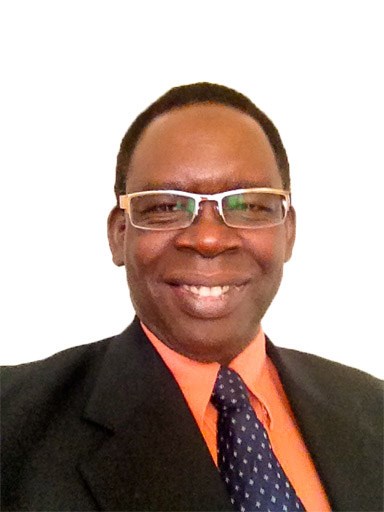Ponziano Aluma arrived in Canada in early January in 1987 after moving from Madi Moyo, Uganda, and besides the chilling -9C weather that greeted him in Regina, he had to endure a slew of other changes and unexpected racism while adapting to his new life.
"Over the years I've built a good network of friends, most of whom aren't necessarily African anymore," said Aluma with a laugh. "I had to learn to take risks and adapt to the new culture that surrounded me."
Aluma is the author of We're Here! Now What? It's a personal tale about the adjustments he had to make when he moved to Canada and the expectations he had coming in. His book has caught the attention of readers across Canada, and has resonated not only with new Canadians, but people who have lived here for an extended period of time, like Gail Bowen, professor of creative writing at the University of Regina and author of the mystery book series featuring Joanne Kilbourn, Mystery Series.
Aluma will be in Estevan on Sept. 27 for a book reading during the Collage Cultural Festival.
The aforementioned racism he experienced is part of what he calls the "expectation gap," a concept he said many newcomers face.
"These are expectations people have coming in, but in reality once they hit the ground they discover that things are totally different. Having to negotiate with that bridge is quite an experience," he noted. "We have a very different representation of what life in Canada is like when you're in Africa."
He talked about the few Canadians he met in Africa before moving to Canada, and how he discovered they didn't reflect Canada overall once he moved to Regina.
"The warmth you expect from people here generally comes from those certain selected pockets of people who have foreign experience in most cases. Those who don't have that experience, you don't get what you expect from them. For some people, this is a bit of a rude awakening," he explained.
His advice for newcomers is simple; be open-minded.
"Don't be afraid to take risks. By that I mean don't be afraid to approach people who don't look like you," he said.
As a result of Ugandan President Idi Amin's fall in the late seventies, who was largely responsible for the expulsion of 60,000 Asians, Aluma left the country with his family and thousands of other northern Ugandans to southern Sudan. The priority for him and his family was feeding his younger siblings, nephews and nieces, which also meant he couldn't complete his post-secondary education.
He found hope however, in the form of the World University Service of Canada and the U of R, which sponsored his education in Regina.
The eventual publishing of his book was spearheaded by a tragedy within the family. Two of Aluma's nephews, ages four and six, are living in Uganda. Their mother was raped twice. She was impregnated each time and contracted HIV, and had to give up her children once they were born. Aluma sends money overseas to the two children who now live with Aluma's parents. His sister hasn't been seen since she escaped from a mental health hospital.
The success of Aluma's book has fueled the funding for his nephews' adoption process, which currently sits at $14,000, still short of the $35,000 goal. The author and Canada Revenue Agency employee, however, remains optimistic.
"I was approached by someone a few years ago who told me if I write my story, he would promise to pay for the printing. With that kind of challenge, I had no option other than to write. I had the need, the opportunity, and the encouragement of friends, and unless I didn't care about what I believed in, I would do nothing," he said. "I find myself in a very positive position to help those two children."
Sarah Mehler, director of the Southeast Newcomer Society in Estevan, said Aluma will provide an excellent opportunity for residents in the community, especially new Canadians, to interact and get some guidance from someone who has gone through the same uncertainty they have.
"A lot of newcomers experience that culture shock and the language barriers. Sometimes they don't exactly know where to go to obtain the resources necessary to get involved within their community," she said.
Mehler noted alongside Aluma's reading, the Culture Collage Festival will have live music and a global market that will run from noon to 5 p.m. on Sept. 27.




